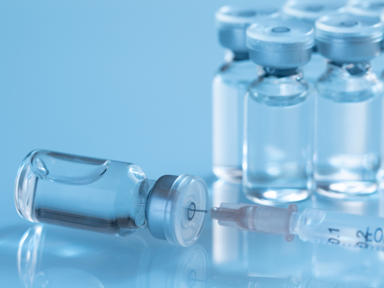expresspharmaJune 18, 2021
Tag: PHDCCI , PLI , Sanjay Aggarwal
Industry body PHD Chamber of Commerce and Industry (PHDCCI) has urged the government to play an enabler’s role for the vaccine sector, and sought clarity on the status of the segment under the ambit of the production-linked incentive (PLI) scheme announced for the pharma sector.
In a letter to the Prime Minister’s Office, PHDCCI President Sanjay Aggarwal noted that the PLI documents do not give information regarding specific allocation of the sector which is critical for the country amid the ongoing coronavirus pandemic.

He noted that although vaccines have been put under the biopharmaceuticals category, there is not much clarity as to how vaccine manufacturers could benefit from the PLI scheme.
“This pandemic has taught us the importance of vaccines and has highlighted the capability of the Indian vaccine manufacturing industry to shoulder not only this pandemic but any health-related calamity that the world can potentially face. Therefore, it is critical for the Government of India to support this industry through initiatives like PLI, to enable this industry in maintaining its global leadership,” Aggarwal noted.
“Despite a total allocation of Rs 21,940 towards the pharmaceuticals sector, the allocation to Indian vaccine manufacturers has not been clear,” Aggarwal said.
He noted that it is critical that the central government plays the role of an enabler for this sector.
“We would urge the Department of Pharmaceuticals (DoP)…to appropriately consider inclusion of vaccines under the eligible product category while formulating detailed guidelines for the scheme,” he noted.
Vaccine manufacturing, being a highly capital-intensive industry, continues to face limitations in process optimisation, adequate funds, lack of adequate logistics and cold chain infrastructure, Aggarwal said.
“High cost of raw materials, resources required for continuous R&D (research and development) and state-of-the-art technology are other key bottlenecks faced by the manufacturers,” he added.
Aggarwal noted that governments across the globe have been supporting various initiatives in vaccine development and manufacturing.
“For instance, the European Commission launched the biggest R&D innovation programme, Horizon 2020, under which 650 million euro out of the total allocation of 80 billion euro has been allocated towards vaccination research and innovation,” he said.
Elaborating on the importance of the sector, Aggarwal said India is among the global leaders and is currently exporting vaccines to as many as 150-170 countries worldwide.
India contributes 40-70 per cent of the WHO’s demand for Diphtheria, Pertussis and Tetanus (DPT) and Bacillus Calmette-Guerin (BCG) vaccines, and 90 per cent of the demand for the measles vaccine.
The country has also initiated Vaccine Maitri, a humanitarian initiative to provide COVID-19 vaccines to as many as 95 countries so far, he added.


Contact Us
Tel: (+86) 400 610 1188
WhatsApp/Telegram/Wechat: +86 13621645194
Follow Us:




 Pharma Sources Insight January 2025
Pharma Sources Insight January 2025


